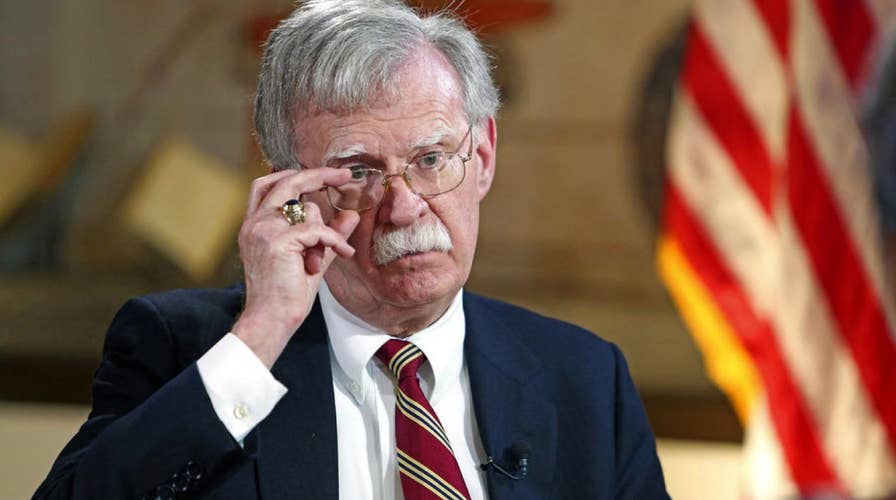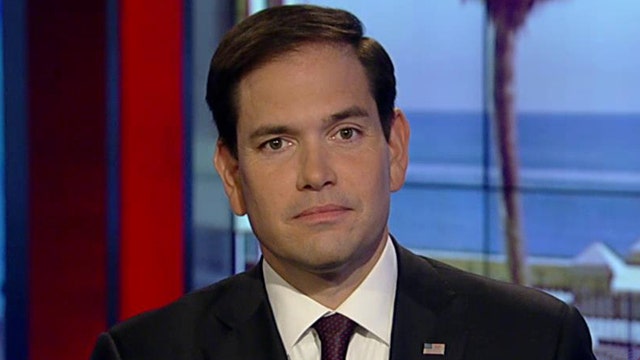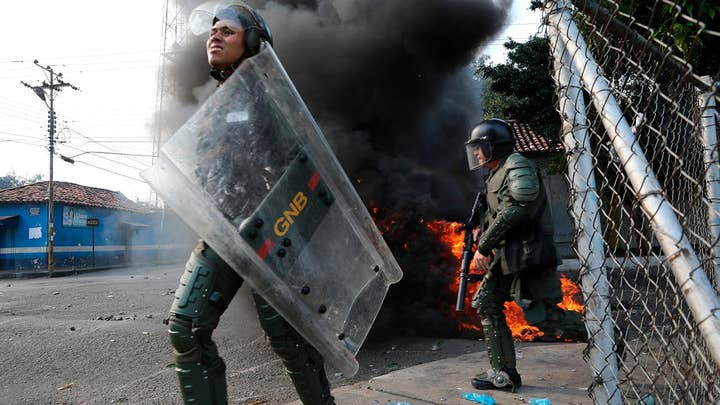White House targets Cuba, Venezuela and Nicaragua
National Security Adviser John Bolton brands the countries a 'troika of tyranny' while announcing new sanctions over human rights violations and political oppression.
The State Department on Monday announced it would allow lawsuits to be brought against Cuba companies and individuals by people whose property was seized by the communist government during and after Fidel Castro's revolution in the late 1950s.
In the United States' latest move to punish Cuba and encourage democracy in the communist nation, the State Department announced it would suspend for 30 days part of the 1996 Libertad Act, also known as the Helms-Burton Act, and allow some lawsuits to be brought against companies using properties confiscated by the Cuban government after its 1959 revolution.
"Even under a new president in Cuba, nothing has changed," a senior State Department official said Monday. "The U.S. is holding the Cuban regime responsible."
Every president since Bill Clinton has suspended the section of the act that would allow such lawsuits because they could snarl companies from U.S.-allied countries – like the United Kingdom, France and Spain – in years of complicated litigation that could prompt international trade claims against the United States. The State Department, however, made clear that any lawsuits brought in U.S. federal courts would target Cuban entities and sub-entities, not ones owned or controlled by U.S. allies.
Allowing a limited number of lawsuits could make investment in Cuba more burdensome for companies thinking of entering the market, who will now have to do additional research into their legal liability, but it is unlikely to be a major blow against the Cuban economy.
"This is the first time we're not fully suspending this section of the Libertad Act," the senior State Department official said. "We're giving claimants the opportunity to sue for their property."
While State Department officials said the move was focused on advancing the cause of individual rights in Cuba, other officials also linked the actions to Havana's role in supporting the regime of disputed Venezuelan President Nicolás Maduro.
CUBA CITES LACK OF EVIDENCE IN MYSTERIOUS SONIC ATTACKS ON DIPLOMATS
In a tweet on Monday, National Security Adviser John Bolton blamed Cuba for its role in “fomenting repression in Venezuela” and said the U.S. would be tightening financial restrictions.
“Cuba’s role in usurping democracy and fomenting repression in Venezuela is clear,” Bolton tweeted. “That’s why the U.S. will continue to tighten financial restrictions on Cuba’s military and intel services. The region’s democracies should condemn the Cuba regime.”
Caracas and other parts of the South American nation continue to be plagued by widespread shortages of basic supplies and political unrest.
On Friday, the U.S. imposed sanctions on six high-ranking members of the Venezuelan security forces and revoked the visas of other officials and their relatives in the latest effort to pressure Maduro to relinquish power.
The sanctions are in response to the blocking of humanitarian aid convoys last week while the visa revocations on dozens of individuals are intended to punish people who have flourished amid the South American country's dire economic crisis, Elliott Abrams, the special representative for Venezuela, told reporters.
Maduro's forces fired tear gas and buckshot at activists trying to deliver humanitarian aid in violent clashes on Feb. 23, leaving two people dead and about 300 injured.
"Maduro supporters that abuse or violate human rights, steal from the Venezuelan people or undermine Venezuela's democracy are not welcome in the United States," Abrams said. "Neither are their family members who enjoy a privileged lifestyle at the expense of the liberty and prosperity of millions of Venezuelans."
Venezuelan opposition leader Juan Guaido arrived back in the country on Monday as hundreds of protestors gathered in a Caracas plaza, heeding a call from the self-declared interim president to turn out for his expected return to Venezuela.
Dozens of countries – including the U.S. – have recognized Guaido as Venezuela's legitimate leader, arguing that last year's re-election of Maduro was invalid.
Guaido returned from a tour of several Latin American nation where he was hoping to drum up support among regional leaders for his claim to leadership in Venezuela.
After nearly 60 years of a trade embargo, meanwhile, the Cuban economy is in a period of consistently low growth of about 1 percent a year, with foreign investment at roughly $2 billion. But tourism, remittances and subsidized oil from Venezuela have allowed the government to maintain basic services.
The Associated Press contributed to this report.















































